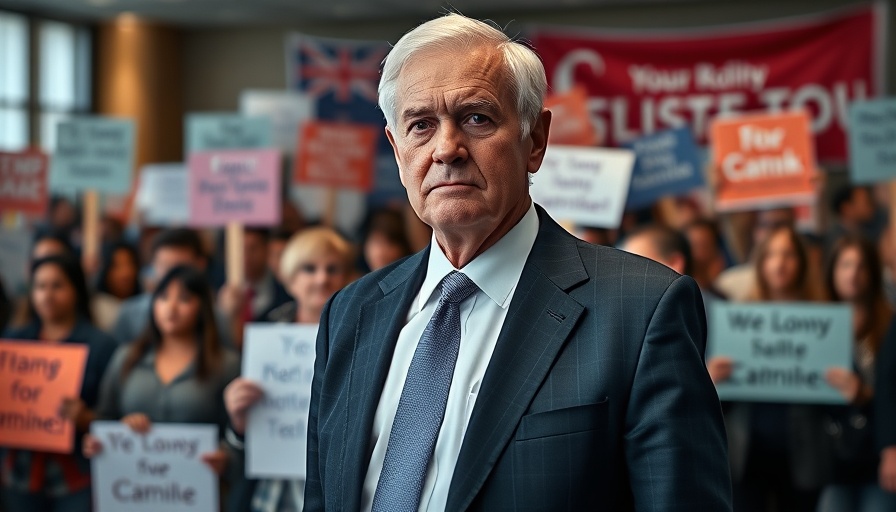
The Legal Battle Over Homeless Shelters in California
In a significant turn of events, the city of Nowalk, California, has decided to drop its attempts to ban homeless shelters amidst increasing pressure from state authorities. This move comes after Governor Gavin Newsom filed a lawsuit against the city, highlighting the state's commitment to addressing homelessness as a pressing crisis throughout California. This ruling not only underscores the complexities of local governance when it comes to homelessness but also highlights the ongoing struggle many cities face in balancing community needs with state mandates.
The Impact of Governor Newsom’s Lawsuit
Governor Newsom's intervention was a crucial factor in this decision. By taking legal action, the state positioned itself as a strong advocate for vulnerable populations, emphasizing that local municipalities cannot sidestep their responsibilities toward those experiencing homelessness. This not only sets a precedent for other cities but serves as a reminder of the state’s role in managing homelessness effectively. With nearly 170,000 Californians living on the streets, increasing the availability of shelters has become imperative.
Understanding Community Responses
Reactions from the Nowalk community have been mixed. While some residents advocate for increased shelter availability to mitigate the homeless crisis, others express concerns about safety, property values, and community aesthetics. These differing perspectives highlight the challenge community leaders face in implementing effective solutions. For residents in Bakersfield and the surrounding areas, these developments may directly influence how local officials approach similar situations, especially where resistance to shelters has been noted.
Future Predictions: Trends in Homelessness Policy
As cities grapple with homelessness, we can expect to see more lawsuits from state leaders challenging local ordinances that obstruct shelter development. This trend may push cities toward more collaborative approaches in addressing homelessness. Such collaborations may involve increased funding for shelters and mental health services, indicating a shift toward more comprehensive solutions. Areas like Bakersfield could follow suit, looking to strengthen both local and state partnerships to effectively manage homelessness concerns.
What This Means for Bakersfield Residents
The implications of this ruling extend beyond Nowalk, resonating deeply with residents of Bakersfield. As the state firmly supports shelter initiatives, local leaders may find themselves compelled to reassess their strategies regarding homeless services. It's vital for residents to voice their opinions and contribute to the dialogue around the best paths forward. Community engagement is essential, as the future of homelessness policies in Bakersfield could be significantly influenced by what residents communicate to their local officials.
Emphasizing the Need for Solutions
The story of Nowalk and its legal encounter with Governor Newsom illustrates a larger narrative happening throughout California: meeting the urgent need for homelessness solutions. The reality is stark; without a multi-faceted approach that embraces prevention, affordable housing, and emergency services, the crisis will continue to escalate. Cities cannot afford to ignore the vulnerabilities faced by many. If anything, California is entering a new era of addressing homelessness where cooperation among the state, local governments, and citizens becomes the cornerstone of effective action.
For residents of Bakersfield and neighboring regions, this ongoing discussion about homelessness shelters reminds us: community involvement is crucial. It's time for citizens to stay informed and engaged with local policies affecting their neighborhoods. Reach out to your local representatives, attend community meetings, and share your thoughts on how to approach homelessness effectively. Change starts with awareness and action, and together, we can work toward impactful solutions for all.
 Add Row
Add Row  Add
Add 



Write A Comment